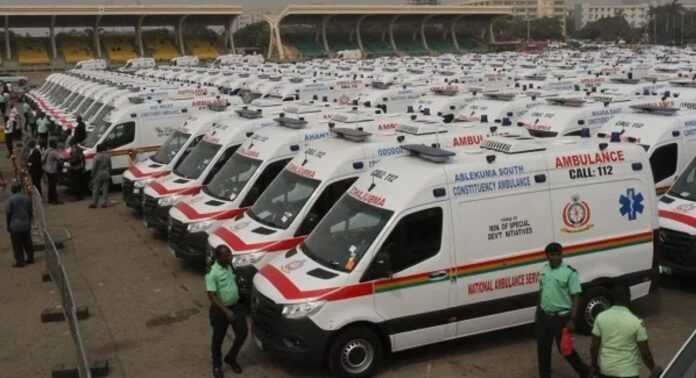The Public Interest and Accountability Committee (PIAC) has expressed concerns over the continued lack of adequate funding for industrialisation, despite it being designated as a priority area for investment under the Annual Budget Funding Amount (ABFA) in recent years.
Industrialisation has been a central policy focus for the current government since 2017, with flagship initiatives like One District, One Factory (1D1F) and One Village, One Dam (1V1D) aimed at boosting the sector.
However, despite the sector’s priority status, funding from the ABFA has remained significantly low, raising doubts about the government’s commitment to fostering industrial growth.
According to PIAC’s 2023 Semi-Annual Report, between 2020 and 2022, of the GH₵9.04 billion allocated from the ABFA to four priority areas, only GH₵57.35 million was directed towards industrialisation.
In comparison, other priority areas, such as agriculture and infrastructure, received substantially higher allocations, with agriculture getting GH₵184.21 million and infrastructure sectors such as roads and health receiving over GH₵7.67 billion combined.

In 2023, only GH₵2.35 million was allocated to industrialisation, out of a total GH₵3.3 billion. Alarmingly, there was no budgetary allocation for industrialisation in the first half of 2024.
PIAC has called on the Ministry of Finance to consistently commit ABFA funds to industrialisation to generate jobs and stimulate economic growth.
While industrialisation continues to be starved of funds, the roads, rail, and infrastructure sector continues to receive a significant share of the ABFA, with GH₵2.12 billion allocated in the first half of 2024, amounting to 70.04% of the ABFA for that period.
The Petroleum Revenue Management Act (PRMA) requires the review of priority areas every three years, though in cases of national disaster, the Finance Minister may request special funding releases from Parliament.
The current priority areas span 2022-2025. With new priority areas for the next term expected to be announced next year, 2025, PIAC reiterated that it’s important for the selection process to be thoroughly analysed before deciding in order to avert neglecting some areas completely like have been seen with industrialisation.
The review shall be conducted by the minister taking into account development needs, absorptive capacity of the economy, and the need to maintain macroeconomic stability.
If that is anything to stand by, as stated in the Act, then industrialisation going forward must receive more resources to expand the sector for industry growth and job creation, and not mere talks.
























































![[FREE FREE MONEY] Predict and Win a Guaranteed GH¢200 From Us EVERY WEEK](https://wordpress.ghanatalksradio.com/wp-content/uploads/2022/02/Predict-and-Win-Final-09-03-2021-218x150.jpg)
![[Predict & Win – 8th/Oct.] WIN A Guaranteed ¢200 From Us This Week](https://wordpress.ghanatalksradio.com/wp-content/uploads/2021/10/maxresdefault-16-218x150.jpg)
![[Predict & Win – 2nd] WIN A Guaranteed ¢200 From Us This Week](https://wordpress.ghanatalksradio.com/wp-content/uploads/2021/09/maxresdefault-50-218x150.jpg)
![[Predict & Win – 25th] WIN A Guaranteed ¢200 From Us This Week](https://wordpress.ghanatalksradio.com/wp-content/uploads/2021/09/maxresdefault-36-218x150.jpg)
![[Predict & Win – 18th] WIN A Guaranteed ¢200 From Us This Week](https://wordpress.ghanatalksradio.com/wp-content/uploads/2021/09/maxresdefault-23-218x150.jpg)







![[National cathedral] See full list of churches that have contributed since 2018](https://wordpress.ghanatalksradio.com/wp-content/uploads/2020/09/Ghana-National-Cathedral-GhanaTalksRadio-100x70.jpg)



